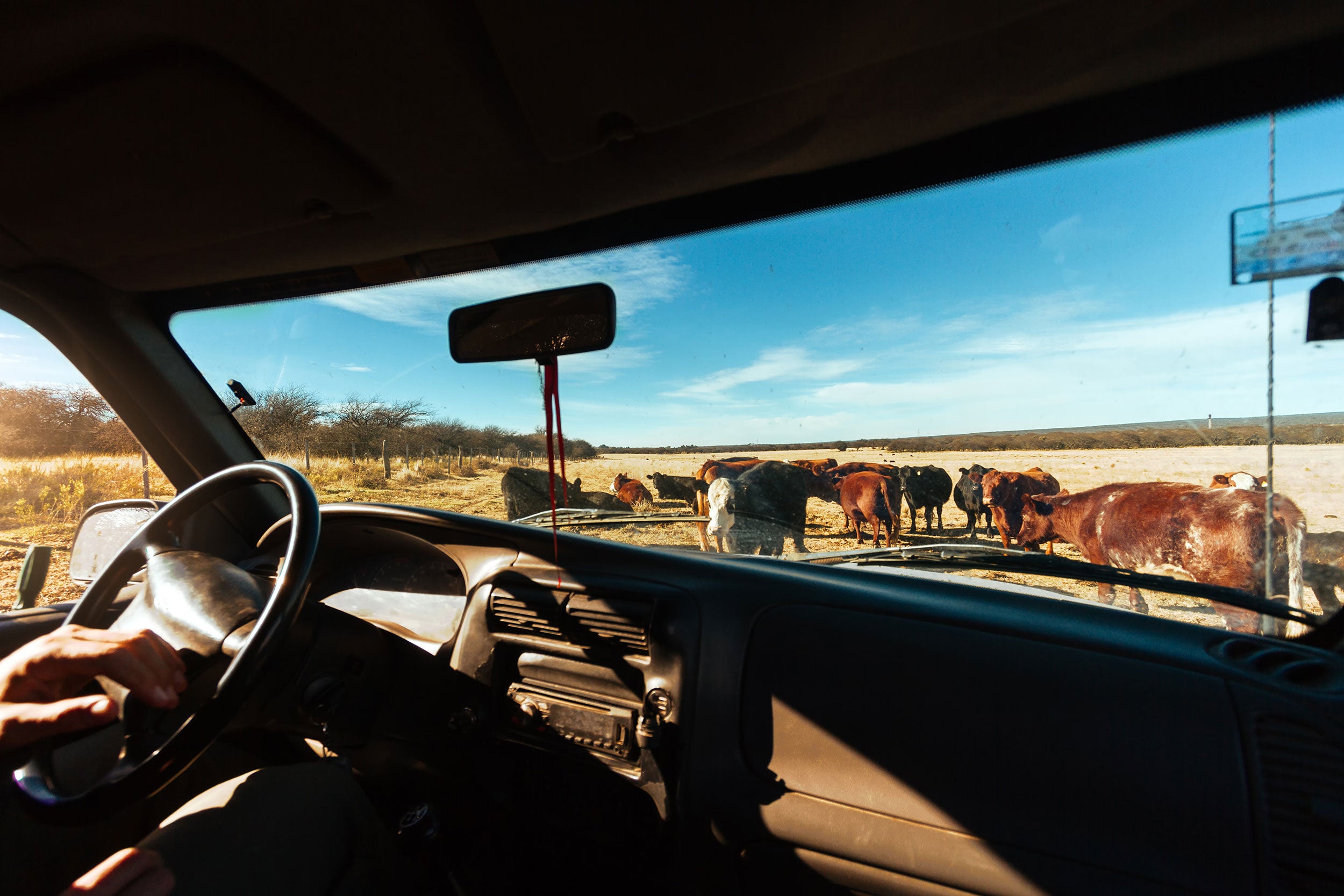Changing economics can surface the fear that haunts many farmers: losing the farm that has been in the family for generations. Chapter 12 bankruptcies saw a significant rise in filings from farms in 2024. The American Farm Bureau Federation reported 216 farm bankruptcies were filed last year, 55 percent more than 2023. Increasingly, agricultural families and communities are struggling, contributing to higher rates of suicide among farmers.
It’s not a surprise that studies have shown that farmer stress increases when animals or crops are diseased. Couple mechanical problems, crazy weather, and no farm bill with the market fluctuations — you can see why ag folks are stressed hourly.
These reports signal why May, which is Mental Health Month, is a great time for all of us to do a quick check-in. Just as you look through your fields and barns for problems, you need to evaluate your own stress levels. Chronic stress can wreak havoc on your health, from shrinking your brain to increasing your risk of cancer to impacting future generations.
The hidden costs of farming
Jimmy Boschma, an accomplished farmer who built a hay and trucking company, struggled with depression for years after his dad and brother died. His wife, Riley, knew it and tried to help him find therapy, treatment, and peace as they raised their five children in Riverside, California.
He died by suicide at age 37.
“Our family understands the struggles that so many in agriculture face, and we want Jimmy’s story to raise awareness and be a beacon of hope, encouraging others to seek help when they need it. Asking for help is a sign of strength, not weakness — it does not define who you are, but rather shows your courage to keep going,” Riley Boschma told Farm Foundation.

Unfortunately, Jimmy is not alone. The Centers for Disease Control and Prevention reports that agriculture remains as one of the highest risk industries for suicide. Many of us have been touched by this problem in our business — and some devastated by the loss of family members and friends.
Overcoming stress
I’ve covered ways to overcome chronic stress in past columns. Exercising — intentionally, not just walking feed bunks drops cortisol — is crucial, and you need to do three times weekly for a minimum of 20 minutes. The next time you’re looking at herd nutrition, consider that your own TMR likely needs more fiber and greens to help your brain better process stress. Getting more than seven hours of sleep per night is also essential for better decision-making and your physical health — talk to your doctor if you’re not sleeping.
Social interactions are also on the list of ways to beat chronic stress — your social network helps provide space, perspective, and emotional support. You can’t do it alone, despite your need to be independent or that you may have been raised to pull yourself up by your bootstraps. Humans need humans, just as cows need cows.
Finding anonymity and help
Are you worried about gossip if you disclose your problems in your hometown? Not interested in having your truck be seen at the local therapist’s office? There’s an anonymous and free new tool for you. Togetherall is an online community you can go to talk about the stress of agriculture.
Togetherall is a global network of peers, backed by licensed clinicians and designed to provide a nationwide safety net of confidential and on-demand support to farmers, ranchers, and farm families. Simply put for older generations, it’s akin to AOL chatrooms — but safe. Members around the world are there to listen, support, and give members’ mental well-being a boost. You can learn more at this site.
Through an anonymous profile, you can access a global network of peers — others in agriculture — on Togetherall. The platform is backed by the safeguarding of licensed clinicians overseeing the community around-the-clock
Join Togetherall to see if it might be a simple tool to improve your resiliency. Farm family members 16 and older can access the service for free. Topics discussed include anxiety, depression, financial health, improving sleep, loneliness, relationships, and stress.
Bringing like minds together
The Farm Family Wellness Alliance believes this is the best resource to build farm family wellness. Togetherall offers access to a community, including a network of farmers and ranchers who understand the challenges and rewards that come with our way of life. The Alliance built this by connecting with the software of Togetherall with the additional support services through a partnership with Personal Assistance Services. In short, they are people who understand rural lifestyles.
The Farm Foundation came to together in 2024 with AFBF, Farm Credit, CoBank, Iowa Farm Bureau, CHS, Land O’Lakes, National Farmers Union, 4H, FFA, Agriculture Future of America, The Native American Agriculture Fund, Farm Rescue, National Corn Growers Association, and Ace Pumps Corporation to create Farm Family Alliance Partners and offer Togetherall.
Tim Brennan from the Farm Foundation reported that they’ve had about 16,000 interactions from 47 states since January 2024. Of those:
- 61% of users are men between the ages of 45 to 70
- 63% are not connected to any formal mental health help
- 17% have considered suicide
- 80% that use Togetherall found the community helpful
- 19% have had interactions with clinicians
- 17% are from underserved communities
- Night and late night are the highest use times
It’s remarkable what happens when like minds come together. Brennan said, “Eighty percent of our users find the solution that they needed just by talking to each other.”
Perhaps the best testament is that they’ve saved three people from suicide (that they know of).
Unfortunately, Jimmy was not one of those. But his widow, Riley, believes in the Farm Family Wellness Alliance enough that she raised a significant gift to support their efforts in memory of her husband. “Through this gift, we hope to ensure that farm families have access to the mental health support they need and to reduce the stigma that prevents many from seeking help.”
It’s a reminder that your role as a human is much bigger than your work. You are more than your farm or business!
Are you a Canadian looking for an online community? Be sure to check out the Do More Ag Foundation. Co-founded by my friend and farmer Lesley Kelly, Do More is a not-for-profit that has focused on farmer mental health since 2017. In 2023, they partnered with Togetherall to offer AgTalk, the same free peer-to-peer support platform mentioned above. They’re also active on social media, offering regular mental wellness tips – follow @DoMoreAg.
Will you take action?
The resources are available to help you — and your loved ones — manage the stress so prevalent in agriculture. Are you willing to make this the month that you prioritize your own health and take action?
Michele Payn speaks and writes to help the people of agriculture have tough conversations about managing stress, connecting with consumers, and making sense of science. Learn more about her stress management journal at causematters.com or follow @mpaynspeaker on social media.


